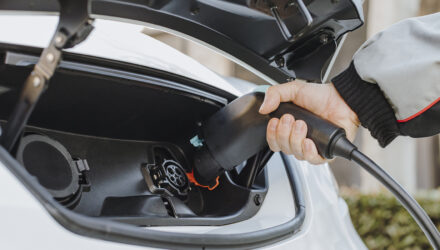
It’s been almost ten months since the demonizing of diesel began, sparking speculation of a diesel scrappage scheme and the future of diesel cars. The Government’s recent clean air report, which outlined its intention to end the sale of all new conventional petrol and diesel cars and vans by 2040, has created even greater uncertainty. Now Auto Trader, the UK’s largest digital automotive marketplace, enjoying approximately 55 million cross platform visits each month, reveals what impact these developments have had on consumer buying behaviour and the wider car market.
The Government’s recent clean air report, which outlined its intention to end the sale of all new conventional petrol and diesel cars and vans by 2040, has created even greater uncertainty. Now Auto Trader, the UK’s largest digital automotive marketplace, enjoying approximately 55 million cross platform visits each month, reveals what impact these developments have had on consumer buying behaviour and the wider car market.
A decline in diesel searches
On average, 25% of all searches that take place on Auto Trader each month are based on fuel type.
In November 2016, 71% of car buyers selecting a fuel type when searching on Auto Trader chose diesel, compared to just 26% for petrol vehicles. As the first public announcement from Government Minister Chris Grayling came in November on a potential diesel scrappage scheme, followed by months of negative press coverage on diesel cars, the share for diesel searches had dropped to 54% by May 2017. Petrol searches gained as a result, rising to 43% of all searches in the same month. Yet despite this, car buyers still search for diesel vehicles more than any other fuel type on Auto Trader.
From May 2017 diesel searches returned to growth, rising to 56% in June and petrol dropping to 41%. In spite of this, diesel is still a long way from recovering the dominant share of searches it held before November 2016.
Following the Environment Secretary’s announcement that the sale of all petrol and diesel vehicles will be banned by 2040, there was a significant spike in alternatively fuelled cars searched for on Auto Trader. On the day of the announcement, 26th July, there was a 680% increase in consumers searching for electric, 257% for petrol ethanol, 170% for hybrid, and 129% for bi-fuel.
Commenting, Karolina Edwards-Smajda, Auto Trader’s Retailer and Consumer Product Director said: “Given the level of coverage it’s not surprising there has been a decline in searches, but despite the ongoing negative rhetoric the impact on diesel has been fairly limited up to this point. The return to growth on our marketplace is testament to not only the resilience of diesel, but also its popularity amongst car buyers.”
A slowing in diesel price increases
The used car market is experiencing an increase in average used car prices. In July 2017, the average price of a used car was £11,780, 4.5% higher than it was for the same month in 2016. This growth is the result of a younger used car market of better conditioned cars, fuelled by the continued growth of new car finance in recent years.
Yet despite this average market increase, diesel is the only fuel type where month-on-month price increases are slowing. The average year-on-year price increase for diesel used cars was just 1% in July 2017, which was balanced by a year-on-year price increase of 7.7% for petrol vehicles.
Karolina continued: “Whilst diesels remain a popular option for car buyers, it’s interesting to observe that at a time when the used car market is experiencing year on year growth, the ongoing negative commentary is having a slight impact on their retail value. Given the timing and the fact the slowdown is isolated only to diesel, a coincidence seems unlikely. Price is still increasing year on year, but growth is slowing, suggesting retailers are finding it harder to increase prices.”


















